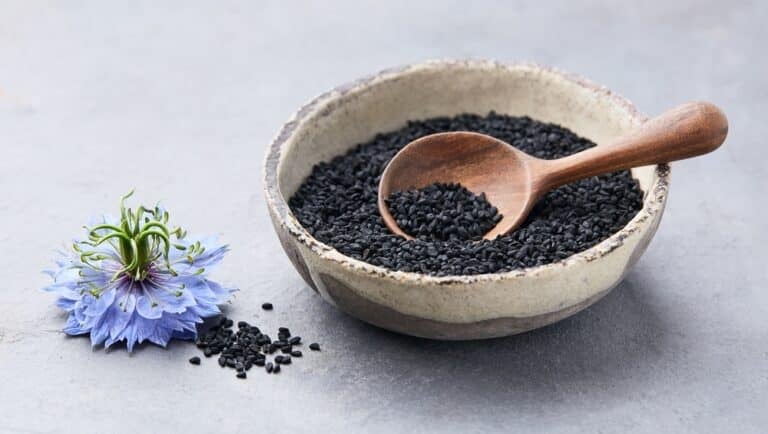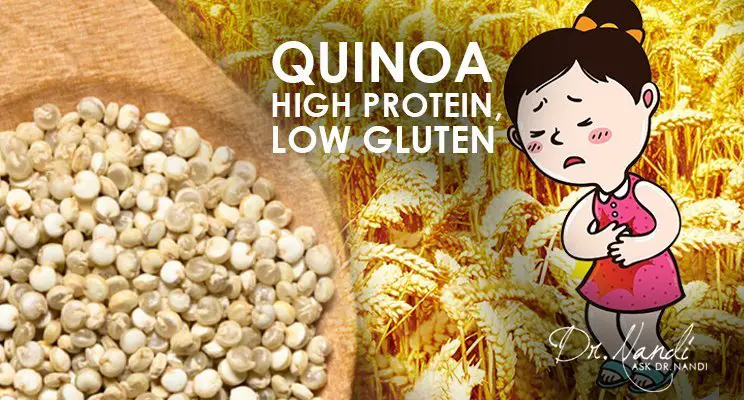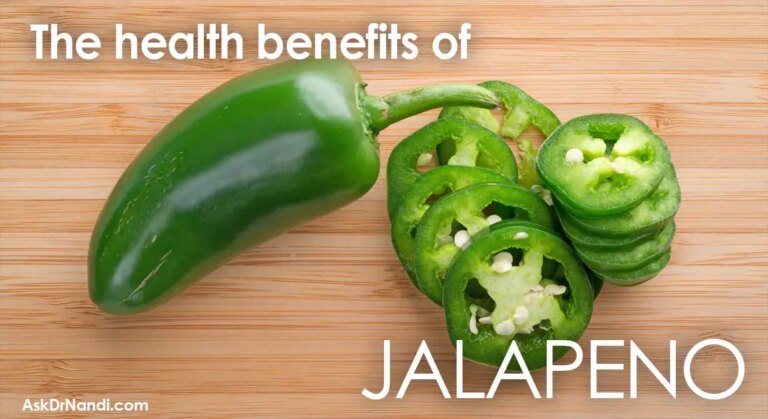Many people are now conscious of how their food choices affect their health — but have you ever thought about what you drink?
The good news: studies are providing us with healthy solutions on which tasty beverages to enjoy.
Tea is the most popular beverage consumed by two-thirds of the world’s population and the most widely consumed beverage in the world, next only to water. (4)
A variety of teas may boost your immune system, fight off inflammation, and even ward off certain diseases, say experts. (13)
Tea is beneficial to the immune system because it is high in antioxidants and an excellent source of hydration. Many types of tea have antiviral and antibacterial properties that can help keep you healthy.
Still, the choices can get confusing for the average person wishing to sip something potent.
From black tea, white tea, and ginger tea to oolong or herbal tea, many drinks have healthy attributes. Therefore, when life provides you with a cup, you should fill it with something healthy!
Although our immune systems naturally regulate themselves, whatever is in your cup can also spill out. So, it’s wise to research aspects of nutrition in your spare time, and Dr.Nandi’s Newsletter can help you find drinks that are both delicious and have nutritional value.
In the meantime, below are three of the best teas that are superior to sip for healthy immune functioning in your body.
Turmeric Tea for Healthy Immune Function
Turmeric is a bright orange root with a slightly bitter flavor related to ginger and is commonly used in Indian cuisine.
Turmeric contains curcumin, a compound with antimicrobial properties that can help prevent illness, as well as relieve joint and digestive pain. (7)
Making turmeric tea can be as simple as cutting off a small knob of turmeric root, skinning it, putting it into a cup, and adding boiling water.
“Golden milk” has become a top search result, with coffee shops now serving it due to its popularity. The star ingredient in golden milk is turmeric, which gives it a vibrant yellow color and lots of healing benefits.
Ground turmeric powder (or fresh root), freshly ground black pepper, and milk are the only ingredients you need to make golden gilk. You blend all ingredients then simmer on the stove to cook the turmeric.
The black pepper is a key ingredient that complements turmeric.
The key compounds in turmeric are called curcuminoids. Curcumin itself is the most active ingredient in turmeric. (12)
As a polyphenol, curcumin has several health advantages. It’s a strong antioxidant and has anti-inflammatory, antibacterial, and antifungal properties. However, curcumin is not well-absorbed in the body. (10, 11)
Black pepper contains the bioactive compound piperine, which is an alkaloid like capsaicin, the active component found in chili powder and cayenne pepper. Piperine has a significant benefit of being able to boost the absorption of curcumin. (8, 9, 10)

Green Tea Is the Best
Green tea is best known for its cancer chemopreventive and chemotherapeutic effects. Green tea contains polyphenols — powerful antioxidants that have been shown to help fight the disease. (5, 6)
It is made from the processed leaf of Camellia sinensis. Tea types based on processing or harvested leaf development are black (fermented), green (non-fermented), and oolong (semi-fermented). (2, 4)
These tea types differ in how the tea is processed and produced, with different processes of drying and fermentation determining the chemical composition of the tea. (4)
Dayong Wu, MD, Ph.D., Associate Director of the Nutritional Immunology Laboratory at the USDA Human Nutrition Research Center, recently outlined the health benefits of tea in a presentation at the 2022 Tea Symposium.
He highlighted the health benefits of green tea consumption, which are attributed to green tea catechins (GTCs)—an antioxidant. In particular, the epigallocatechin-3-gallate (EGCG) is the most abundant and biologically active catechin.
As a result, green tea helps your body fight infection. So, if you do get sick, the tea will help your body respond to illness more effectively by eliminating the infection. (13, 16)
Green tea and its catechins have been shown to aid in the fight against a variety of pathogens—any organism capable of causing disease—by reducing the pathogen’s ability to infect you and assisting your immune system to respond. (15)
GTC and green tea benefit the body in a variety of ways:
- A direct antiviral effect. This includes inhibiting virus absorption, penetration, membrane fusion, and replication in the upper respiratory tract.
- An immune-boosting effect to aid in virus clearance.
- Anti-inflammatory and anti-oxidative properties to aid in tissue repair.
- Vitamins C and E, both antioxidants that help fight free radicals in your body.
- Prevention of T cell-mediated autoimmune diseases.
- Fighting against respiratory diseases like influenza by producing antibodies in the body. (14, 15)
Is Matcha #1 for Your Immune System?
Green tea has been proven as one of the healthiest and most coveted teas in the world. Matcha is a unique and potent type of green tea. (3)
It is derived from the same plant but is grown and prepared in different ways. Because the leaves are ground into powder, you consume the entire leaf. As a result, matcha may provide even more benefits than regular green tea!
Yet, matcha cannot be identified with traditional green tea; it is a separate tea variety with distinct properties.
Matcha green tea, due to its unique composition of bioactive compounds, offers a wide range of health benefits.
It contains high concentrations of phenolic acids, quercetin, rutin, theanine, and chlorophyll. Infusions of matcha tea contain from 32.12 to 44.8 mg/L of vitamin C, depending on the temperature of water used to prepare the infusion and the type of tea. (16)
Just make sure not to exceed 2 cups (474 mL) per day. This is because individual tolerances vary, and excessive consumption of the plant compounds found in matcha may result in nausea and symptoms of liver or kidney toxicity. (1, 3)
Yet, while some studies show these toxicity symptoms, others show potential protective effects. According to some studies, EGCG from green tea may protect against kidney toxicity. (2)
Research is always ongoing, as is tea advertising and news on delicious and inventive brews. One way you can start developing healthy drink choices is by signing up for Dr. Nandi’s Newsletter.
When you start looking after your body, you will soon find out that some of the most delicious drinks in the world aren’t the ones that make you sick — but instead, beverages steeped in health that make you feel vigorous and happy.

My Personal RX:
My Personal RX:
- Exercise Regularly: Aim for at least 150 minutes of moderate-intensity or 75 minutes of vigorous-intensity aerobic exercise per week, along with muscle-strengthening activities.
- Mix It Up: Include various types of exercises like cardio, strength training, and flexibility exercises to keep your routine enjoyable and balanced.
- Stay Hydrated: Drink plenty of fluids before, during, and after exercise to support overall health.
- Consider Supplementation: My Immune Health Supplement is designed to complement a healthy lifestyle and provide additional support for your immune system.
- Listen to Your Body: If you’re feeling ill or overly fatigued, give your body a chance to rest and recover.
For a comprehensive guide to building a lifestyle that supports both your immune system and overall well-being, download our free 50-page ‘Protocol for Optimizing your Health and Wellbeing.‘ It’s a step-by-step guide designed to help you make significant changes in your life.
Strengthen your body’s defenses through regular exercise, and get the support you need with My Immune Health Supplement

Sources:
- https://www.ncbi.nlm.nih.gov/books/NBK547925/
- https://www.nature.com/articles/srep16226
- https://www.healthline.com/nutrition/matcha-green-tea#safety-side-effects
- https://www.ncbi.nlm.nih.gov/pmc/articles/PMC4055352/
- https://pubmed.ncbi.nlm.nih.gov/18154485/
- https://pubmed.ncbi.nlm.nih.gov/18501505/
- https://www.ncbi.nlm.nih.gov/pmc/articles/PMC4022204/
- https://www.ncbi.nlm.nih.gov/pmc/articles/PMC3535097/
- https://www.ncbi.nlm.nih.gov/pmc/articles/PMC5664031/
- https://pubmed.ncbi.nlm.nih.gov/27529277/
- https://www.ncbi.nlm.nih.gov/pmc/articles/PMC3633300/
- https://www.ncbi.nlm.nih.gov/pmc/articles/PMC3535097/
- https://www.pennmedicine.org/updates/blogs/health-and-wellness/2019/december/health-benefits-of-tea
- https://food.ndtv.com/food-drinks/international-tea-day-the-best-tea-to-improve-immunity-experts-suggest-2994569
- https://www.eatthis.com/best-tea-stronger-immune-system/
- https://www.ncbi.nlm.nih.gov/pmc/articles/PMC7796401/










 Subscribe to Ask Dr. Nandi YouTube Channel
Subscribe to Ask Dr. Nandi YouTube Channel









